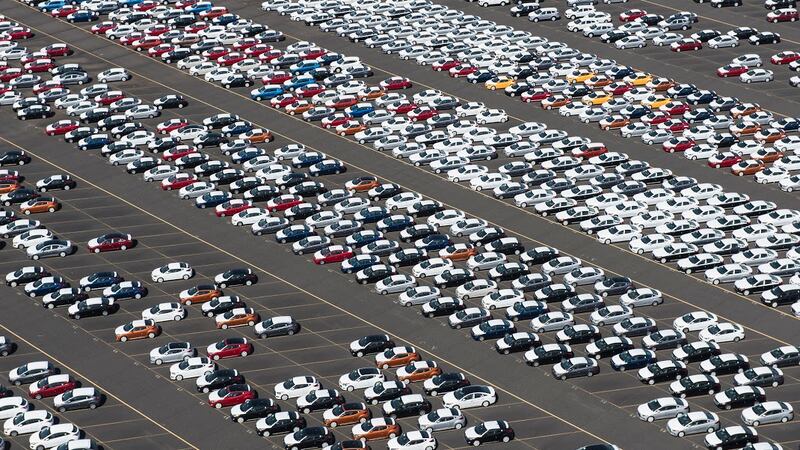President Donald J. Trump is considering raising tariffs on foreign-made vehicles imported into the U.S—a move that could impact one of the Port of Portland's most successful lines of business.
On Wednesday, the president hinted on Twitter that he was preparing to take action to protect U.S. autoworkers.

Today, the New York Times and others reported that Trump has ordered the Commerce Department to examine whether to place tariffs on imported vehicles to stem the flow of imports for the benefit of domestic manufacturers.
That would be bad news for the Port of Portland, which last year moved nearly 1,000 vehicles per day. Portland is the leading West Coast exporter of U.S.-made vehicles and among the leading importers of vehicles manufactured in Japan, Korea and Mexico. (A tariff on imports would likely lead to other countries putting tariffs on U.S.-made vehicles, hurting exports.) An economic study done for the port found that vehicle operations provide at least 600 family wage jobs at the the port.
Portland boasts two advantages when it comes to handling vehicles: its location on rivers, rather than the ocean means there's no salty air and water to corrode vehicles; and, direct rail service to Chicago and other midwestern cities is a bonus for shippers moving vehicles in and out of the center of the country.
Last year, the port imported or exported 316,571 vehicles—including exporting 87,000 Ford vehicles—and it is ahead of that pace so far this year.
As with other Trump economic initiatives, the proposed tariffs left the industry involved puzzled.
"If these reports are true, it's a bad day for American consumers," John Bozzella, the chief executive of Global Automakers, a trade group, told the New York Times. "To our knowledge, no one is asking for this protection."
U.S. Sen. Ron Wyden (D-Ore.), the ranking member of the Senate Finance Committee, also questioned whether Trump's idea makes sense.
"The Administration has yet to explain how this latest action fits into a coherent strategy to increase American auto jobs and wages for American workers, or whether it is just designed to create more chaos and confusion," Wyden said in a statement. "Given the president's recent moves to pull back on enforcement against China, I increasingly doubt such a strategy exists."
